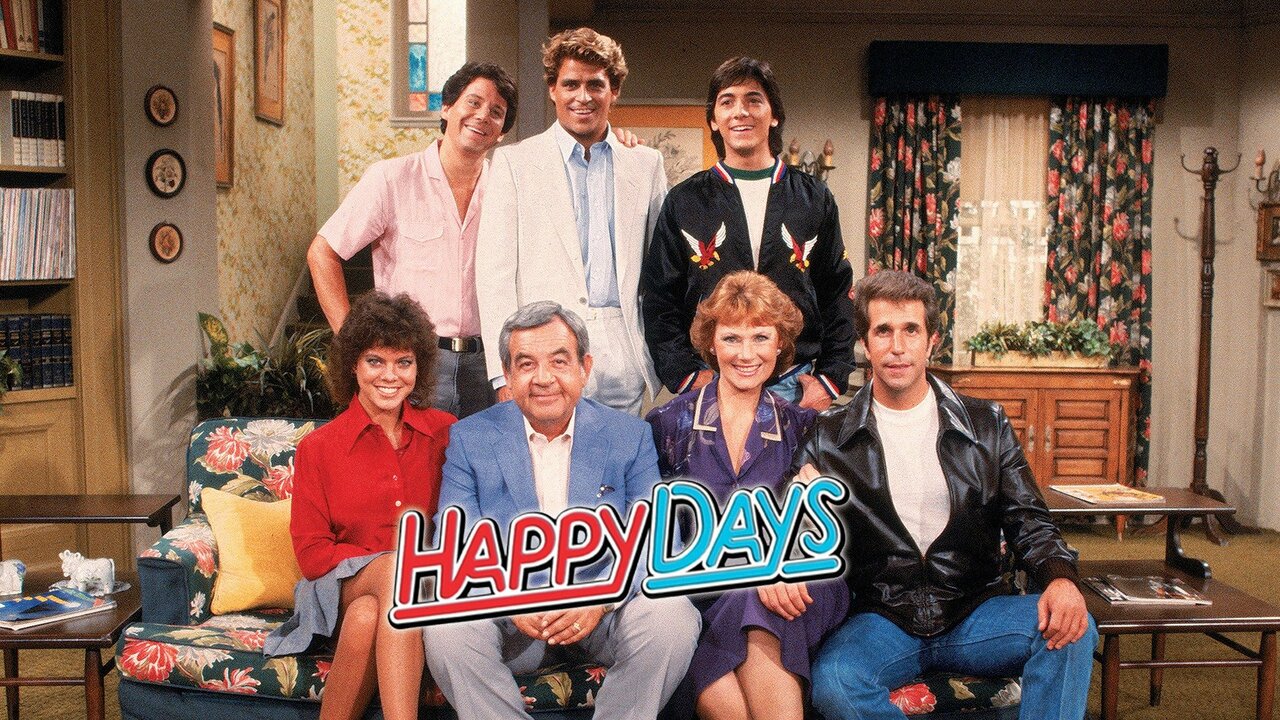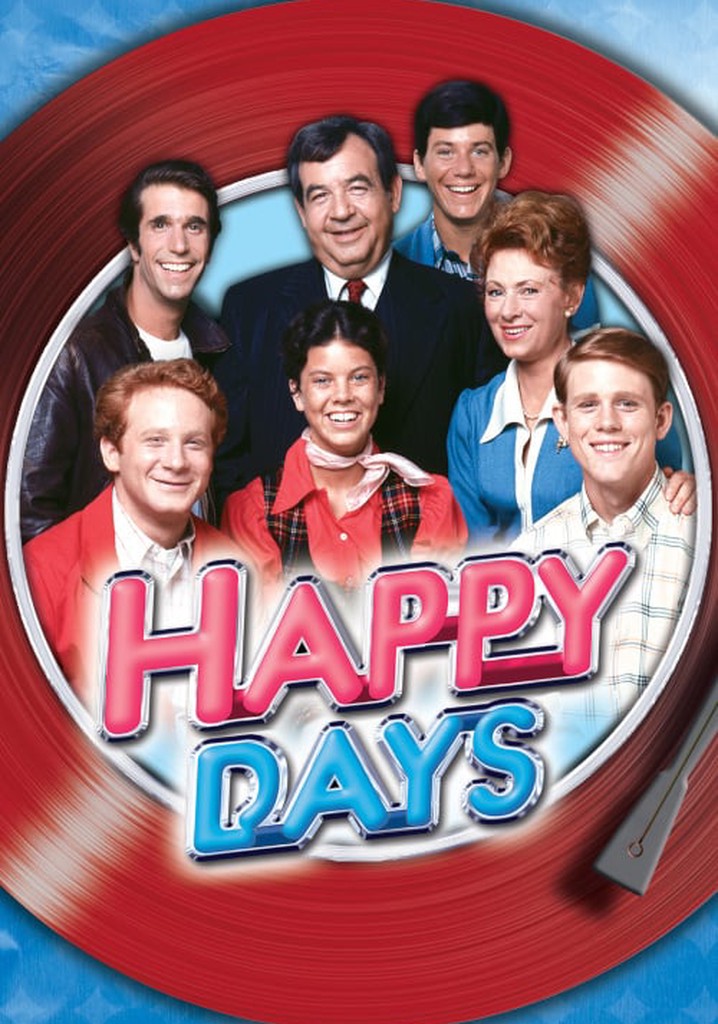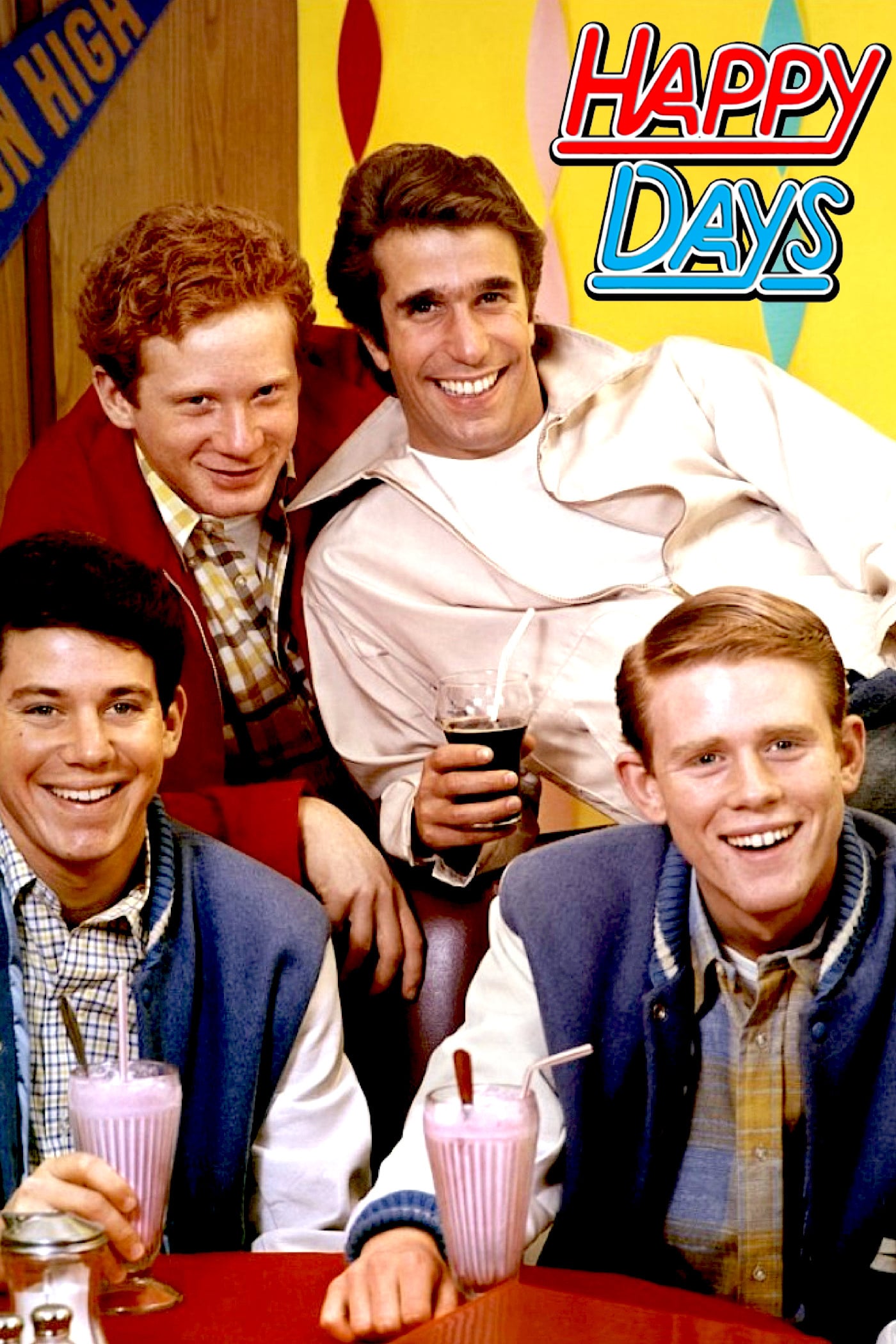There's something truly special about a television show that sticks with you, a show that, you know, just feels like coming home. For so many people, that feeling comes from a classic American sitcom, a series that, in a way, painted a picture of a simpler time. This show, so often talked about, is none other than Happy Days. It's a program that, quite frankly, captured the hearts of millions, offering a comforting look back at a particular era.
The program, which aired for a good long run, from 1974 to 1984, managed to create an idealized portrayal of life. It was set in a specific place, Milwaukee, Wisconsin, and it took viewers back to the 1950s. This setting, with its particular feel, really helped shape the show's whole atmosphere. You could say it was, in some respects, a window into a version of that decade.
Even today, in late 2024, the impact of Happy Days is still felt, its stories and characters resonating with new generations discovering it for the first time, and with those who remember it fondly. It's a show that, you know, sparked conversations, created lasting expressions, and, very truly, left a big mark on television history.
Table of Contents
- The Story of Happy Days: A Sitcom's Journey
- The Cultural Footprint of Happy Days
- Frequently Asked Questions About Happy Days
- Why Happy Days Still Matters Today
The Story of Happy Days: A Sitcom's Journey
Happy Days, you know, began its run in 1974, bringing a certain kind of warmth to television screens across the country. This beloved American sitcom was on the air for a full decade, ending its original broadcast in 1984. Its whole purpose, you could say, was to offer an idealized portrayal of life during a particular period.
A Glimpse into 1950s Milwaukee
The show's setting was quite specific, taking place in Milwaukee, Wisconsin. This city, with its midwestern charm, provided the backdrop for nearly all the stories. It was, in a way, a character itself, helping to define the feel of the show. The program truly aimed to transport viewers back to the 1950s, a time often looked back upon with a sense of nostalgia.
The atmosphere created was one of innocence and community, a very particular vision of that decade. You see, the creators really wanted to show a version of the 1950s that felt, you know, comforting and familiar. It wasn't just about the stories; it was about the whole vibe, the cars, the music, the way people dressed, all contributing to that specific era's look and feel. This attention to detail, in some respects, made the setting quite memorable for viewers.
The Cunningham Family and Their World
At the very heart of Happy Days was the Cunningham family, a central group that, you know, anchored the entire series. Howard Cunningham, the father, was a hardware store owner in Milwaukee, Wisconsin. He was, you know, a steady presence, a good example of a family man. His wife, Marion, was the kind, understanding mother, often offering wisdom and support to her family.
The show followed the life of their teenager, Richie. He was, essentially, the main character for a good portion of the series, and his experiences, you know, growing up during the 1950s, formed many of the storylines. His friends, his school life, his dates, all these things were, in a way, the fabric of the show. The family home, with its familiar kitchen and living room, was, basically, a hub for all the neighborhood kids, especially Richie's pals. It was a place where everyone felt welcome, a true reflection of the show's warm spirit.
Iconic Characters and Their Impact
The show was, very truly, brought to life by its cast members, who, you know, became household names. Henry Winkler played a character who, very quickly, became one of the most popular figures on television. Marion Ross brought a genuine warmth to her role as the mother. Tom Bosley, as the father, gave the family a solid foundation. Erin Moran played a significant part too, adding to the family dynamic.
These actors, and their characters, were, in a way, what made the show so special. They each contributed to the overall feel, creating a sense of a real community. The interactions between them, you know, felt very natural and, basically, like a real family. Their performances, arguably, helped make Happy Days a classic that, even now, people love to watch again and again.
The Cultural Footprint of Happy Days
Happy Days left a mark on popular culture that, you know, goes beyond just being a popular TV show. It introduced phrases, launched careers, and, in some respects, shaped how people thought about television series. Its influence is, quite frankly, still felt in discussions about entertainment and its impact on society.
The Birth of a Phrase: Jump the Shark
One of the most interesting things about Happy Days is that it was where the expression "jump the shark" was born. This phrase, you know, has become a widely used term in pop culture. It describes a moment when a TV show, or sometimes even a movie or a series of events, reaches a point where its quality, basically, starts to decline. It's when something so unbelievable or outlandish happens that fans feel the show has gone too far, moving away from what made it good in the first place.
The specific event that, you know, led to this phrase happened in one fateful episode. A character, Fonzie, was on water skis, and he jumped over a shark. This scene, for many fans, was the exact moment they felt the show, quite honestly, went into a quality shift. It was, in a way, a turning point that, basically, changed how some viewers perceived the series from that point onward. The phrase itself, you know, is now used to describe any creative work that seems to lose its way.
Lasting Legacy and Spin-Offs
The show's legacy extends to major TV spinoffs, which, you know, helped expand its universe. These related series, in some respects, continued the stories of characters introduced on Happy Days or explored new ones within the same kind of world. This ability to create new shows from the original was, basically, a testament to the popularity and, you know, the strong foundation of the series.
Stars like Henry Winkler, who played a very popular character, went on to have long and varied careers, with their time on Happy Days being a significant part of their public identity. Other notable actors, like Tom Hanks, also had early appearances on the show, which, you know, contributed to its rich history. These connections, in a way, highlight the show's place as a starting point or a key moment for many performers. You can learn more about Happy Days and its cast on external sites.
The Enduring Appeal of the Cast
There's a consistent public interest in the cast members who, you know, brought Happy Days to life. People often want to know what the actors are doing now, how their lives have changed since their time on the show. You see, there's a certain curiosity about the people who played these beloved characters. This interest, basically, speaks to the strong connection viewers felt with them.
The question of who among the Happy Days cast members has changed the most is, you know, a common topic of discussion among fans. It shows that the characters, and the actors who portrayed them, left a lasting impression. Their presence in the show was, in a way, so strong that people still follow their careers and lives, many years after the series ended its run. It's, arguably, a true sign of the show's enduring charm. You can learn more about classic television on our site, and also explore other iconic sitcoms from that era.
Frequently Asked Questions About Happy Days
People often have questions about Happy Days, you know, wanting to understand more about its impact and its place in TV history. Here are a few common inquiries that, basically, come up quite a bit.
What was the main setting of Happy Days?
Happy Days was set in Milwaukee, Wisconsin. The stories, you know, mostly unfolded in this midwestern city, giving the show a very specific local feel. It was, in a way, a key part of the show's identity.
When did Happy Days originally air?
The beloved American sitcom Happy Days captured hearts from 1974 to 1984. So, it was on television for a full decade, which is, you know, quite a long run for a series.
What famous expression came from Happy Days?
Happy Days was where the expression "jump the shark" was born. This phrase, you know, became a widely recognized term after a particular episode where a character, Fonzie, jumped over a shark on water skis.
Why Happy Days Still Matters Today
Happy Days holds a special place in the hearts of many, and its relevance, you know, continues even now. The show's idealized portrayal of the 1950s offered a comforting escape for viewers, a chance to visit a time that, in a way, seemed simpler. It was, basically, a family-friendly program that focused on universal themes of growing up, friendship, and community.
The characters, from the hardware store owner Howard Cunningham and his wife Marion, to their son Richie, and, of course, the very popular Fonzie, became like old friends to millions. Their stories, you know, resonated because they touched on everyday experiences that people could relate to. The show's ability to create such memorable figures is, arguably, a big reason for its lasting popularity.
Even with its lighthearted approach, Happy Days, you know, also became part of television history in a very significant way, particularly with the origin of the "jump the shark" phrase. This contribution to pop culture language is, basically, a testament to its widespread influence. So, whether you're looking for a dose of nostalgia or, you know, just curious about a show that helped shape TV, Happy Days remains a truly engaging watch.



Detail Author:
- Name : Lilian Leffler
- Username : alanna95
- Email : stephanie23@hotmail.com
- Birthdate : 1976-07-02
- Address : 2471 Mohr Mission West Mandy, IA 86953
- Phone : +1.808.951.0944
- Company : Bechtelar, Feest and Reichel
- Job : Brazing Machine Operator
- Bio : Commodi exercitationem et est explicabo. Nesciunt rerum et iste modi a quas.
Socials
twitter:
- url : https://twitter.com/nash.harris
- username : nash.harris
- bio : Et ipsa quae repellendus accusantium. Enim aut est et nemo. Ullam cum natus delectus rem ut voluptatem.
- followers : 813
- following : 559
instagram:
- url : https://instagram.com/nash9593
- username : nash9593
- bio : Ipsum rerum rem quasi commodi aut aspernatur ex voluptas. Molestias distinctio qui magnam modi et.
- followers : 2586
- following : 2121

